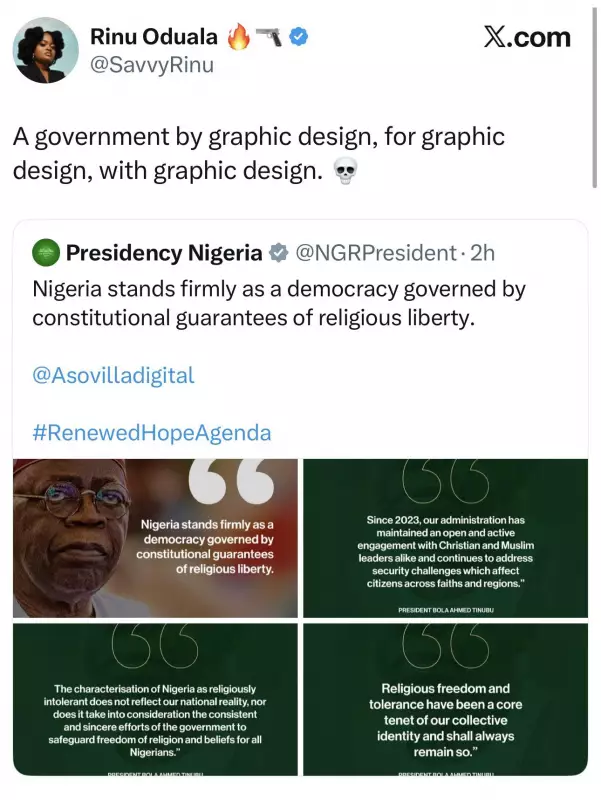
In a stunning rebuke to official claims, prominent digital rights activist Rinu Oduala has called out the Nigerian presidency over its recent assertions about religious freedom in the country. The confrontation emerged following government statements denying religious persecution, which Oduala characterized as misleading and disconnected from reality.
The Graphic Design of Governance
Oduala's critique centers on what she describes as a "government by graphic design" - where carefully crafted statements and polished presentations mask the harsh realities facing religious minorities across Nigeria. She argues that while official communications project an image of religious harmony, the lived experiences of many Nigerians tell a different story entirely.
Contradictions in Official Narratives
The activist pointed to numerous documented cases where religious minorities face systematic discrimination, violence, and restrictions on worship. Despite these well-documented incidents, the presidency continues to maintain that religious freedom remains unimpeded throughout the nation.
"When you compare the beautifully designed official statements with the brutal facts on the ground, the disconnect becomes alarming," Oduala stated in her social media exposé. "No amount of graphic design can erase the testimonies of those who suffer for their beliefs."
Growing Public Skepticism
The exchange has ignited fresh debate about government transparency and the credibility of official communications. Many Nigerians have expressed support for Oduala's position, sharing personal accounts and documented evidence that contradict the presidency's claims.
This incident marks another chapter in the ongoing tension between civil society activists and government institutions in Nigeria. Oduala, who gained national prominence during the 2020 EndSARS protests, continues to use her platform to hold authorities accountable for their statements and policies.
The Broader Implications
The controversy raises important questions about:
- The credibility of government communications
- The state of religious freedom in Nigeria
- The role of digital activism in modern governance
- The gap between official narratives and citizens' experiences
As the conversation continues to unfold online and in public discourse, many are watching to see how the presidency will respond to these pointed criticisms and whether there will be any substantive address of the concerns raised.





